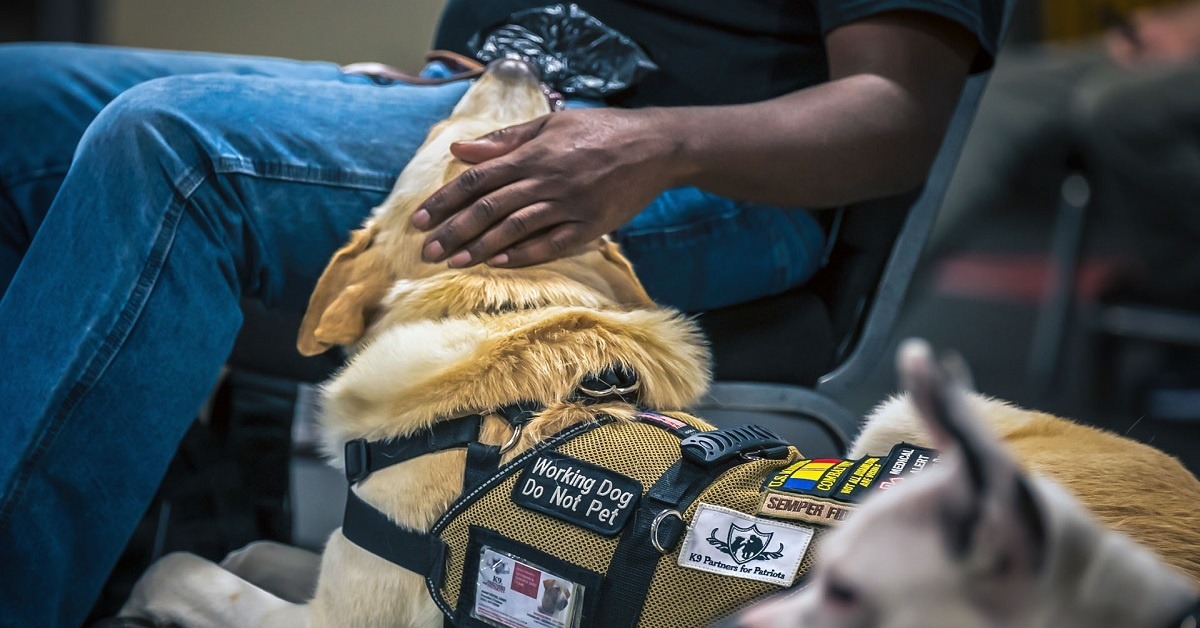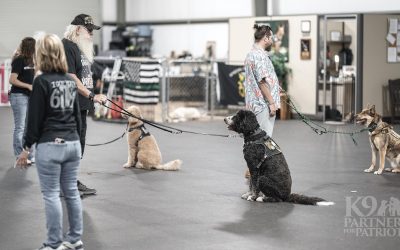PTSD Service Dogs : Unlocking Freedom
Discover the invaluable assistance provided by PTSD service dogs, offering crucial support to individuals managing post-traumatic stress disorder. Explore the unique tasks and benefits of these specially trained companions, enhancing the lives of those with PTSD through companionship, alerting to triggers, and promoting a sense of security. Learn how these service dogs contribute to improved mental well-being and independence.
Emotional Support
PSDs offer emotional support to individuals with psychiatric conditions, such as anxiety, depression, or post-traumatic stress disorder (PTSD). They provide comfort during times of distress and can help alleviate symptoms through their calming presence.
Interrupting Harmful Behaviors
For individuals with conditions involving self-harm or disorientation during anxiety or panic attacks, PSDs are trained to interrupt these harmful behaviors. This could involve nudging, licking, or physically guiding their handler away from potential dangers.
Alerting to Triggers
Service dogs can be trained to detect and alert their handlers to specific triggers associated with PTSD. These triggers could include changes in the handler’s body language, scent, or behavior that precede the onset of a PTSD episode. By providing advance warning, the dog allows the handler to prepare and manage the situation proactively.
Creating Physical Barriers:
In crowded or overwhelming environments, individuals with PTSD may feel anxious or hyper-vigilant. Service dogs are trained to create physical space around their handlers, acting as a buffer and providing a sense of security. This can be particularly beneficial in public spaces where the individual may feel vulnerable.
Grounding Techniques
During PTSD episodes or moments of heightened anxiety or sensory overload, service dogs can employ grounding techniques. This may involve applying pressure with their bodies, such as leaning against their handler or providing deep pressure through specific behaviors, helping to anchor the individual in the present moment.
Nightmare Interruption
Nightmares are a common symptom of PTSD. Service dogs can be trained to wake their handlers during a nightmare or night terror, offering both emotional support and a practical intervention to prevent the escalation of distress.
Retrieving Medication or a Supportive Item
In times of acute distress, service dogs can be trained to retrieve medication or a comfort item for their handlers. This task is particularly valuable when individuals with PTSD need quick access to tools that help them manage their symptoms.
Assistance in Crowded or Unfamiliar Environments
Individuals with PTSD may experience heightened anxiety in crowded or unfamiliar settings. Service dogs provide a reassuring and calming presence, guiding their handlers through these environments and helping to create a sense of safety.
PSDs can help individuals navigate social situations by providing a sense of security and acting as a social buffer. This is particularly beneficial for individuals with conditions like social anxiety or PTSD, where interacting with others may be challenging.
Cueing for Relaxation Techniques
Service dogs can be trained to cue specific relaxation techniques, such as deep breathing or mindfulness exercises, to help their handlers manage stress and anxiety.
Building a Trusting Relationship
Perhaps one of the most significant roles of a service dog for individuals with PTSD is the establishment of a trusting and therapeutic bond. The constant companionship of a well-trained service dog can contribute to a sense of security, reducing feelings of isolation and loneliness.
It’s important to note that the tasks performed by service dogs for individuals with PTSD are tailored to the specific needs of the handler. The training process involves careful consideration of the individual’s triggers and symptoms, ensuring that the service dog can provide effective support in a variety of situations. The presence of a service dog can significantly enhance the quality of life for individuals with PTSD, allowing them to navigate the world with increased confidence and independence.




